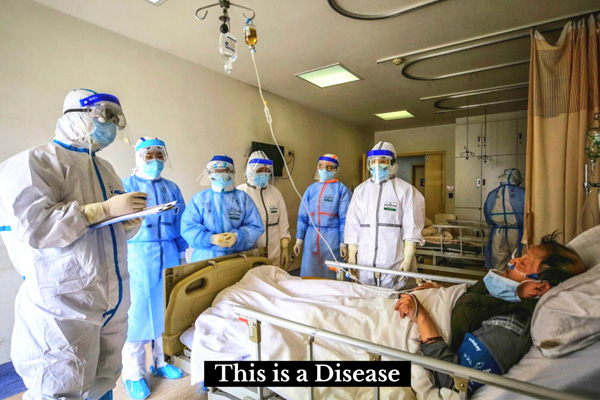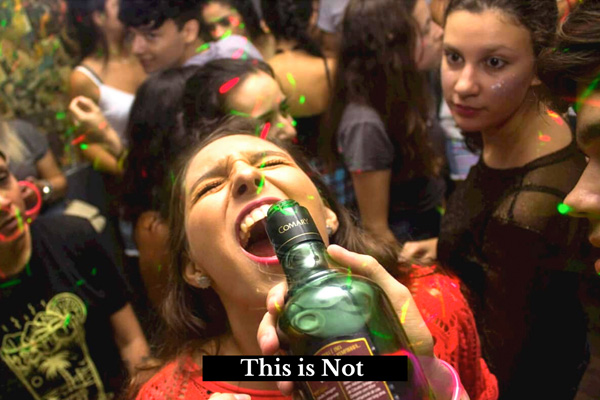Quitting is the Cure
By Christopher Dale
Is calling addiction a disease more harmful than helpful? It’s complicated … but the answer is Yes.
To disease, or not to disease? In addiction circles, that is still the controversial question, despite its official, decades-long recognition as such by the American Medical Association (AMA).
The concept of alcoholism (and through it addiction) being a disease dates back centuries, and began to gain prominence in the 19th Century. In part due to the unprecedented success the then-two-decade-old Alcoholics Anonymous was showing in helping sufferers achieve and maintain sobriety, the AMA designated alcoholism an “illness” in 1956. In 1987, the AMA went a step further, formally classifying addiction as a disease.
Alcoholics Anonymous’ role in addiction’s disease designation was indirect. While the AA program certainly resembled a clinical approach to arresting a clear affliction – a process involving recognizing and addressing both a physical compulsion and a mental obsession – the organization itself neither originated nor promulgated such a formal medical distinction.
Notably, several other Western democracies don’t formally classify addiction as a disease – even though the most prolific treatment for addiction, 12 Step programs, are openly recognized and encouraged.
The point – and it’s an important one – is that a rose by any other name is still a rose. If the most widespread treatment method for addiction remains the same with or without a formal disease recognition, some might argue that official distinctions don’t matter.
But as formal declarations, official designations do matter. Let’s explore why – and discuss how, when the pros and cons are soberly considered, addiction’s official classification merits a medical demotion.
In doing so, what this piece will not do is argue the science of recovery. As a recovering addict with nearly a decade of sobriety through the tried-and-true combination of 12-Step-promoting inpatient rehab and Alcoholics Anonymous, I am simply too biased against anti-AA cranks to objectively dive into the “we’re treating it wrong” debate – which, among other eyebrow-raising claims, often mistakenly equates the concept of powerlessness over substances with powerlessness over one’s destiny. AA gave me back control over my life; this truth is so self-evident that dialogue aimed at eroding its veracity is, at least under my byline, a waste of editorial space.
So no, we’re not treating it wrong. But we are naming it wrong. Here’s why.
Check, Please
A useful rule of thumb when addressing a controversial topic is “follow the money.” And with the “addiction as a disease” debate, the trail is brief, broad and paved.
Addiction’s designation as a disease in essentially the only country in Western Civilization without universal healthcare is no mere coincidence. The United States stands alone among our developed piers in its patchwork system of medical care, relying on an arcane system that, despite the progress of 2009’s Affordable Care Act, continues to permit for-profit insurance companies to play coverage gatekeeper in far too many health circumstances.
So to quote former president and cigar aficionado Bill Clinton, a key factor in addiction’s designation as a disease is the economy, stupid; or rather, the stupid economy. The United States’ medical industrial complex likely plays a pivotal role in the AMA’s reluctance to reconsider addiction’s tenuous claim to full-fledged diseasehood, as doing so would almost certainly prompt a flood of lawsuits, red tape and lobbyist pushback from advocacy groups and insurance companies. The fight, of course, would be over keeping or ditching insurance companies’ obligation to pay for in-patient rehab, intensive out-patient programs (IOP) and other costly, currently covered addiction treatments.
So the AMA has good reason to refrain from addressing the dreaded d-word: because doing so would open a Pandora’s Box that could leave sufferers requiring treatment in the financial lurch. If it’s only sort of broke, this logic dictates, don’t try to fix it.
For better or worse, other countries have less need to cling to vernacular for the sake of privately-funded health coverage. Take the United Kingdom, for example. On the addiction webpage for the UK’s National Health Service, the word “disease” is mentioned exactly zero times. Why?
Well, it’s complicated. While the NHS covers basic treatment for addiction – including detox, talk therapy and certain medicines – full coverage of inpatient rehab is far rarer than in the US. So while government-run universal healthcare generally serves the public well, it also means that, were inpatient rehabs treating addiction covered in full, the taxpayers would be footing the bill directly. That simply wouldn’t fly, and is a reason that treatment centers in the US are both more numerous and more equitable, since elsewhere such treatment often requires fully out-of-pocket payment.
The EU, nearly all of whose member nations have government-funded universal healthcare, faces a similar conundrum: calling addiction a capital-D Disease would carry the obligation for taxpayers to fund expensive inpatient programs. For that reason, the norm across the EU is outpatient treatment – which, as I and many others can attest, is often inadequate.
So yes – there is good reason why the US designates addiction as a full-blown, capital-D Disease: because here, the average taxpayer doesn’t pay for inpatient rehab – which is good because we’re about $30 trillion in the hole and climbing.
So there we have it: the fiscally prudent, practical reason for continuing to call addiction a formal disease.
But just because something is prudent and practical doesn’t mean it’s correct, or even advisable. Past all the medical wrangling over whether addiction’s attributes match those of more conventional diseases, there are two everyday reasons why calling addiction a disease is more harmful than helpful.
Those two reasons are a) addicts themselves and b) non-addicts. In other words … well, everyone. The words we use drive interaction among subsets (like addicts) and society writ large; let’s discuss why “disease” is one word that should be abandoned from addiction terminology.
Diseased Thinking
Let’s start with “everyone else,” the 90-some percent of society that doesn’t suffer from addiction. Here, the argument for stripping addiction from full-fledged disease status becomes a straightforward discussion about acceptance and alliance building. This is not an original thought, merely a convincing one.
Say someone has multiple sclerosis – a bad-luck, out-of-the-blue diagnosis that has absolutely nothing to do with her lifestyle or choices. Her life becomes one of constant vigilance – of staying on top of doctors, insurance companies and whatever healthy steps she herself can take to limit the disease’s progression. She fights and flails through successes and failures, earning her right to remain independent for as long as humanly possible.
What, pray tell, would our heroine think of a drug addict being placed on the same clinical pedestal as her? Do you think she’s more or less likely to be supportive of someone who throws the AMA in her face and claims his substance abuse is on par with her entirely unearned health problems?
Now consider that nearly everyone in society knows someone who has contracted a disease of misfortune: brain cancer, cystic fibrosis, COVID-19. How can the addict community expect tolerance and acceptance while steadfastly insisting our predicament equals those of their loved ones?
What, then, of lifestyle diseases? Of lung cancer, diabetes, obesity? Well … fair point, but tough. Addiction typically comes with damage not only to oneself but to others – to non-addicts. So even though people who smoke and eat themselves into an early grave are often culpable in their own demise, there is still a debauchery differentiator that places addiction apart from other self-caused afflictions.
Let’s also dispel the myth that addiction is “just like depression or anxiety.” No, it isn’t. Depression and anxiety can occur completely independent of actions. As someone who suffered crippling cases of both prior to even becoming an addict, I see the difference between mind-related ailments that “just happen” and those, like my alcoholism, in which I actively participated in developing and deepening.
It is highly encouraging that addiction has gained such widespread understanding and sympathy in recent decades. For that to continue unabated, however, downgrading our shared malady to something slightly less than a full-scale disease is in addicts’ best interests.
For addicts, the d-word also affects the way we see ourselves. Especially considering where we are as a society.
Let’s start with the indisputable positive that arises from considering addiction a sickness rather than solely a personal deficiency. Like many in fledgling sobriety, I struggled mightily to forgive myself even the slightest bit. The notion that I was sick rather than a total sicko – that I had done bad things rather than was a bad person, period – allowed me to make a beginning in recovery that I’ve parlayed into nearly a decade of progressive sobriety.
There’s a distinct difference between guilt and shame. The latter breeds hopelessness, and isn’t conducive to building durable recovery. And guess what? I was sick.
But that doesn’t mean I had a full-fledged disease.
We live in a society of overcompensation run amok. To complicate matters, most of this is rooted in rightness; women speaking up against longstanding sexual harassment and minorities standing up to unfair policing tactics are two prime examples of society moving in the proper direction.
But boy, do we overdo it, fast. Driven primarily by social media – which rewards those with the most extreme positions with likes, shares and retweets – long-overdue social justice reforms become insane notions like defunding police departments and believing anything any women says, ever, regardless of evidence or the crucial tenet of due process.
The point: today’s society goes overboard, fast, and rewards self-victimization and finger-pointing. And for addicts, that’s an exceedingly dangerous environment.
We’re already seeing this seep through into the addiction community – including wishy-washy person-first language (i.e. “person with substance use disorder” rather than “addict”) that, in my opinion, is a slippery slope to softer and therefore less sturdy recovery.
Taken to its nth degree, insisting addiction is a capital-D Disease gives addicts an out that, for someone feeling the remorse of early sobriety, is far too tempting to take: abandoning all responsibility for their actions leading up to recovery.
While the intent behind acknowledging addiction as a disease was never for the addict to escape any and all culpability – to say “I was just sick and now I’m healthy” – that’s what referring to addiction as a full-fledged disease risks. This is completely anathema to the type of honest introspection necessary for sober progress.
In other words, it becomes a scenario where the affliction’s official nomenclature – namely, the d-word – becomes detrimental to its treatment. As an AA member, that runs countercurrent to the program’s primary purpose – to stay sober, and to help others recover from alcoholism – and is therefore unacceptable.
No, addicts must “own it” to grow in recovery. This makes adamant claims that addiction is a full-fledged disease counterproductive.
So what, then, do we call it? Well, pretty much anything other than a disease would do. Ailment, affliction, malady, disorder. Words matter. So break out the thesaurus and let’s find a better term.



